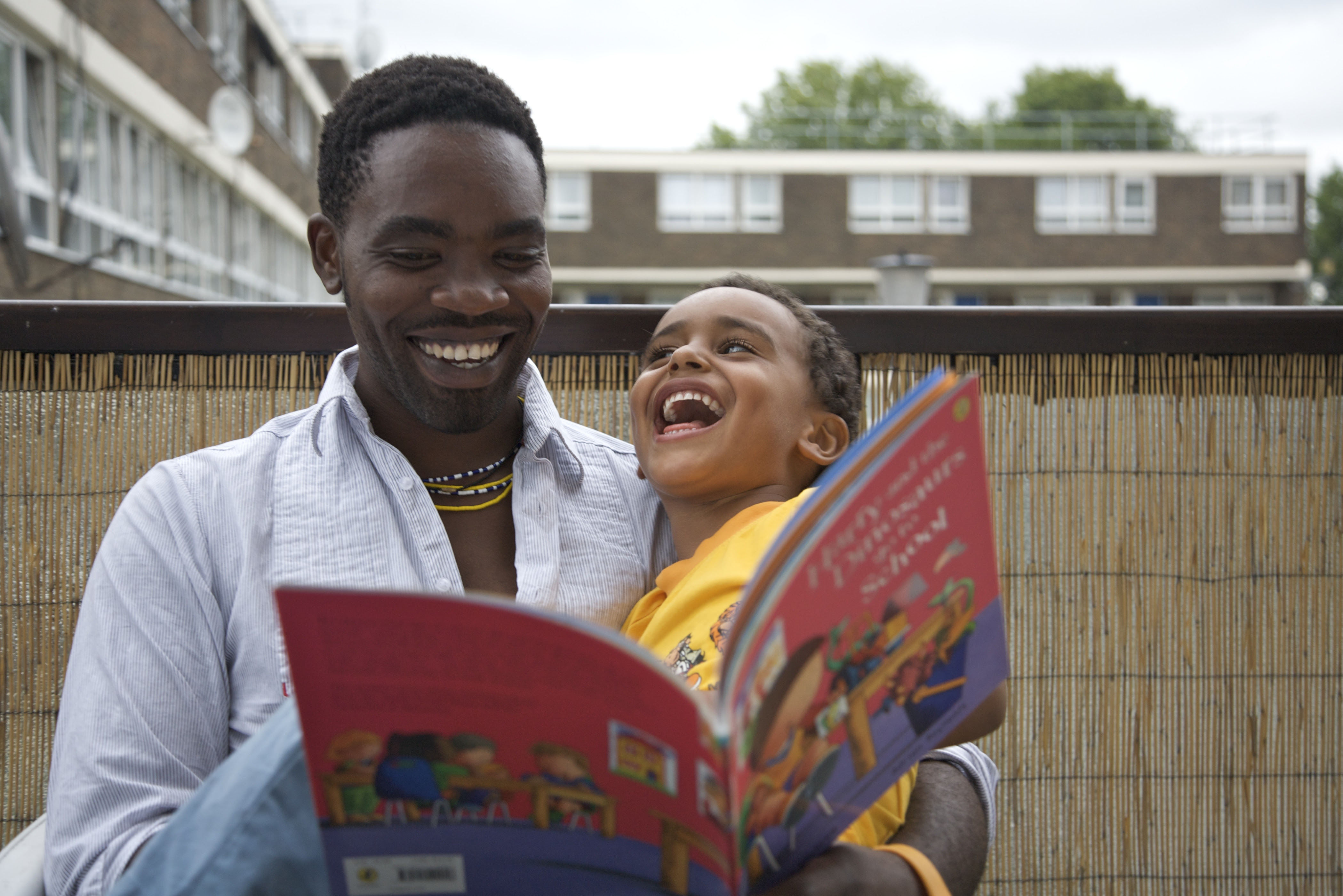More support needed for carers to help them unlock the benefits of shared reading, says children’s reading charity BookTrust
New research undertaken by the National Children’s Bureau (NCB) on behalf of BookTrust, the largest children’s reading charity in the UK, shows that 90% of foster carers who read with their child say it has made a positive impact on the relationship between them. Shared reading helped foster carers to connect with their child, helped them to understand and talk about issues in their child’s life and increased their child’s self- esteem.
Diana Gerald, BookTrust Chief Executive, said:
“Shared reading is linked to a wide range of life outcomes and we are delighted this new research highlights the positive impact reading can have on the relationship between carers and their children. We look forward to working with practitioners to support carers with inspiring a love of books in their children.”
Three quarters of carers surveyed agreed that reading had many educational benefits for their child such as helping to widen a child’s vocabulary, feed imagination, help with school work and build communications skills. Foster carers can be important reading role models for children, with the research highlighting a link between carers’ reading habits and their children’s reading habits.
The research showed the more time foster carers spent reading certain materials, the more time their child spent reading the same materials. This included magazines, newspapers, websites and blogs, comics, audio books, fiction books and non-fiction books.
Lemn Sissy MBE, Author, Playwright and Patron of The Letterbox Club, said:
“It’s brilliant to see this new research shine a light on the importance of shared reading for children in care. It is equally important for these children to be encouraged to read with carers as there will often be a talent within their child that needs and deserves specific attention. BookTrust’s Letterbox Club programme, of which I am a Patron, offers children in care access to stories and books that they may not otherwise have benefited from. There are many heroes in children’s literature who are foster children; Harry Potter was a foster child and orphaned, Paddington Bear was fostered and BFG character Sofia lived in a children’s home. I would urge foster carers to help boost their child’s self-esteem by showing them that these extraordinary characters they admire, are the greatest example of children in care.”
But the research also highlighted the difficulties that foster families face, with nearly half of the carers surveyed not reading with their child on a daily basis, and 1 in 6 foster carers never or hardly ever reading with their foster child. Almost a third of carers reported not finding books their children enjoy as a barrier to shared reading and over half said their children struggled to concentrate when reading.
Four in ten foster children were considered to be below average in their reading levels by their foster carers. But despite this, only 46% of foster carers reported receiving support with helping their foster child to read. This suggests that more tailored help from libraries, schools, children’s centres, nursery schools and local authorities, and improved access to books, would be a huge benefit to these families. BookTrust looks forward to working with practitioners to ensure any further reading support developed meets the needs of families and fits in with the valuable services already provided by these practitioners.
This research also confirms the importance of stability in foster placements, as those children who had been in their current placement for longer, read more frequently with their carer.
Anna Feuchtwang, Chief Executive of the National Children’s Bureau, said:
“Reading with a parent is an enjoyable way to develop literacy skills that can stand a child in good stead for the rest of their lives. But it is especially important that we support reading by foster children – who make up the majority of children in care – as foster carers often say these children’s reading levels lag behind others.
“This year, the new Government must confirm its commitment to the value of reading in its stocktake of foster care in England, not simply as a cornerstone of education but as an enjoyable way of building better relationships within foster families and strengthening children’s communication skills.”
BookTrust provides enjoyable educational support for children aged 3-13 who are looked-after through its award-winning programme The Letterbox Club, which reaches 11,000 children across the UK each year. The programme is managed by BookTrust in partnership with the University of Leicester. Children are sent a colourful parcel of books, maths games and stationery once every month for six months which can improve children’s reading and numeracy and encourage enjoyment of reading by owning their own books.

